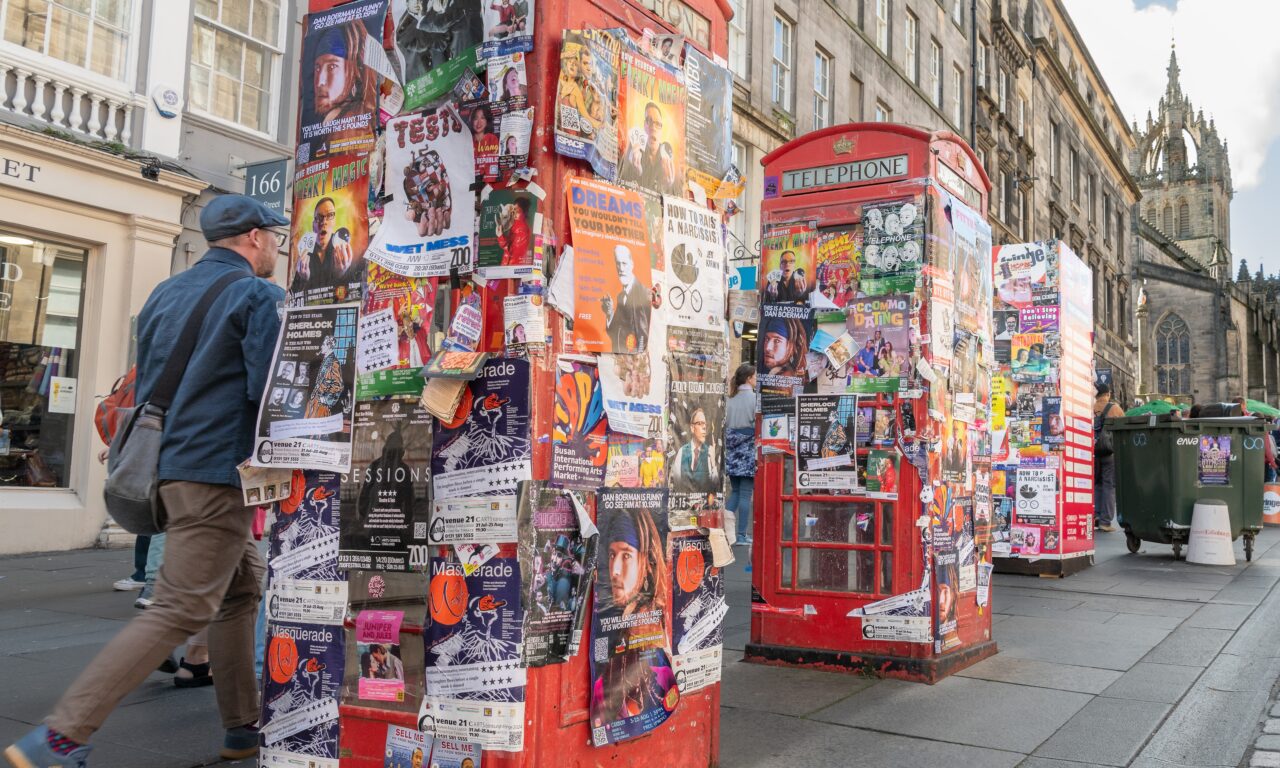From Parliament to the Fringe: Who should fund the Arts?

Edinburgh’s Festival Fringe, the world’s largest open-access arts festival, finds itself at a crossroads a month before its starting date in August. Amid growing calls to cut ties with fossil fuel sponsors, the Fringe is grappling with a question that resonates across the cultural sector: how to reconcile ethical sponsorship demands with financial realities in order to fund the arts.
On Monday, the UK Parliament debated a public petition calling for a ban on fossil fuel advertising and sponsorship across sports, arts, and culture. While not legally binding, the debate, which attracted over 60,000 signatories, offered a revealing window into the growing tension between public values, cultural funding, and climate responsibility.
The debate on sponsorship
This debate didn’t emerge overnight. In 2023, the Hay Festival severed its relationship with Baillie Gifford, a major investment firm whose portfolio includes fossil fuels, following pressure from activists including Greta Thunberg. Baillie Gifford’s withdrawal from other literary festivals soon followed, creating a ripple effect and a notable sponsorship gap across the arts landscape.
Tony Lankester, Chief Executive of the Edinburgh Festival Fringe Society, recently told The Stage that the festival has struggled to attract corporate sponsors in this fraught environment. The festival, which operates on tight budgets despite its global prominence, now faces significant funding challenges as it seeks to navigate an increasingly fraught sponsorship landscape.
Why the Sponsorship Debate Matters
The core of the debate touches on the values underpinning cultural institutions. Supporters of banning fossil fuel sponsorship argue that accepting such funding sends conflicting messages, especially given the urgent climate crisis. Many audiences and artists feel uncomfortable knowing that the companies linked to environmental harm are funding their cultural experiences.
Inside the Parliamentary Debate
This tension was highlighted in Monday's debate, which illuminated the complexities facing policymakers, cultural leaders, and sponsors alike, each of whom, for different reasons, are seeking to fund the arts.
MPs acknowledged the legitimacy of public concerns about fossil fuel sponsorship. Siân Berry, a Green Party spokesperson, stressed how sponsorship can force audiences into uncomfortable positions, especially when beloved sports teams, theatres, or festivals are tied to companies whose interests clash with environmental responsibility.
Yet government ministers urged nuance. Michael Shanks, a Conservative MP, recognized the scale of public engagement but cautioned against an outright ban. Many cultural and sporting organisations depend heavily on private sponsorship to survive, and alternatives are scarce. Abruptly withdrawing funding without viable replacements could threaten these institutions themselves.
The debate also underscored the broader policy context. The UK government highlighted ongoing clean energy initiatives, such as ending onshore wind bans, investing billions in hydrogen networks, and creating publicly owned energy companies. These measures, they argued, reflect a commitment to climate action beyond advertising restrictions.
To read more about the current state of sponsorship of the arts in the UK, click here.
Where does the Fringe stand?
Edinburgh’s Fringe, with its vast and varied programme, illustrates the dilemma vividly. While many festival-goers and artists are vocal about environmental concerns, the festival faces the harsh economics of arts funding. Without sufficient corporate sponsorship, including some from controversial sectors, the Fringe risks diminished scale, diversity, and reach.
This delicate balance between principled rejection and pragmatic acceptance lies at the heart of the issue. Festival executives seek sponsorships aligned with their values but acknowledge the real challenge of replacing large sums tied up in contentious sectors.
Finding a way forward
In sum, while there's recognition that private funding is a vital lifeline for many cultural institutions, growing public pressure demands greater transparency, accountability, and alignment with sustainability goals.
Some suggest that festivals like Edinburgh’s could pursue more rigorous ethical sponsorship frameworks, setting clear environmental criteria for partners, increasing support for clean energy initiatives, and fostering dialogue with audiences and artists. Others emphasize the importance of government support to fund the arts, enabling culture to thrive without compromising values.
Where things stand
The conversation is ongoing. Parliament’s debate made clear that while fossil fuel sponsorship is increasingly contentious, a balance must be struck that protects cultural vibrancy and economic viability. The Fringe’s sponsorship challenges exemplify this tension, raising broader questions about how the arts navigate a climate-conscious world.
As Edinburgh’s stages fill this summer, with 20% fewer acts than normal, the spotlight on sponsorship choices will remain bright. For now, the festival and the wider arts sector continues its search for partnerships that honour both principle and practicality, ensuring the show can go on.
Subscribe to The Sponsor and get access to practical sponsorship tips, exclusive interviews and expert insights.









